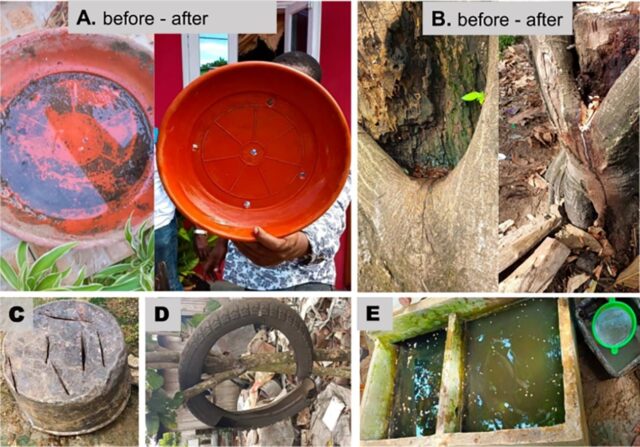By Basile Kamgang and al

During the first dengue outbreak reported in Sao Tome and Principe in 2022, entomological investigations were undertaken aiming to establish the typology of Aedes larval habitats, the distribution of Aedes (Ae.) aegypti and Ae. albopictus, the related entomological risk and the susceptibility profile of Ae. aegypti to insecticides for a better evidence-informed response. The results revealed the presence of Ae. aegypti and Ae. albopictus in all seven health districts of the country with high prevalence of Ae. aegypti in the most urbanised district, Agua Grande. Both Aedes species bred mainly in used tyres, discarded tanks and water storage containers suggesting a good waste management and improving water supply system could help to reduce Aedes densities and the risk of dengue transmission. Analyses also revealed that most of the insecticides tested remain effective to control Aedes vectors in Sao Tome except dichlorodiphenyltrichloroethane and bendiocarb. These findings revealed at high potential risk for dengue transmission throughout the year and underline the importance to raise community awareness and to implement routine dengue vector control strategies to prevent further outbreaks in Sao Tome and Principe, and elsewhere in the subregion.
Read more: https://journals.plos.org/plosntds/article?id=10.1371/journal.pntd.0011903






